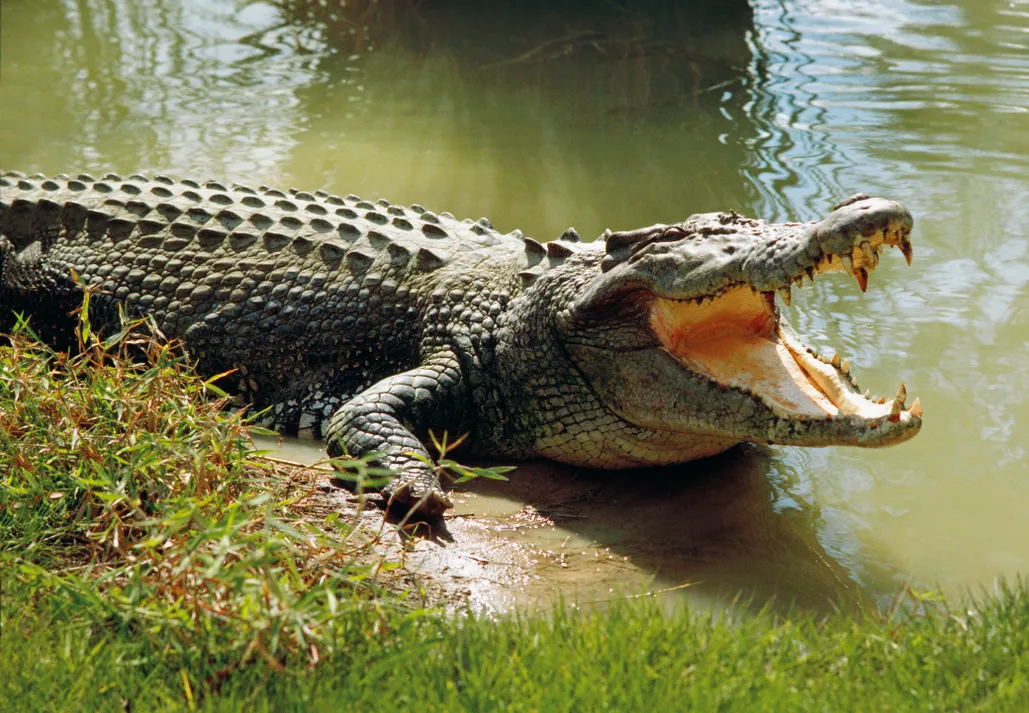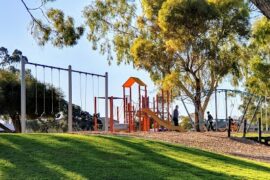Understanding Crocodile Safety in Australia: A Parent’s Guide
Welcome to the world of crocodile safety in the wonderful land of Australia, where adventure and caution go hand-in-hand! ???
Introduction to Crocodile Country
Hey there, amazing parents! Preparing for an exciting journey Down Under with the little ones and want to make sure you’re clued up about crocodiles? You’ve clicked the right link! Australia is home to some of the most fascinating wildlife on the planet, and crocodiles are no exception. With over two species calling Australia home, understanding these ancient creatures is not just interesting, it’s essential for your family’s safety and peace of mind.
Types of Crocodiles in Australia
Let’s introduce you to the two species of crocodiles found in Australia – the formidable Saltwater Crocodile and the smaller, friendlier Freshwater Crocodile. Knowing the difference is the first step to staying safe:
- Saltwater Crocodiles (Crocodylus porosus): These are the larger and more aggressive of the two species, found in the northern regions from the eastern coast of Queensland to the western coast of the Northern Territory. Always treat them with utmost respect!
- Freshwater Crocodiles (Crocodylus johnstoni): Smaller and less aggressive, these crocs inhabit fresh waterways but can occasionally appear in saltwater. They’re generally shy, but it’s still important to keep a safe distance.
Crocodile Habitats – Where They Lurk
You’ll find the majestic Saltwater crocodiles lounging about in river estuaries, coastal beaches, and even mangrove fringes, but don’t let their lazy appearances fool you; they are expert ambush predators. Meanwhile, the Freshwater crocodiles prefer the serene environments of rivers, creeks, and plunge pools. Knowing where these habitats are will help you plan your trip and activities accordingly.
Top Crocodile Safety Tips for Families
The safety of your family is paramount when exploring croc country. Here’s a sneak peek at some must-know tips to stay safe:
- Observe Signage: Always be on the lookout for crocodile warning signs. They’re put up for your protection, so take them seriously.
- Supervise Children: Never allow children to play near croc-inhabited waters without adult supervision. Keep a watchful eye at all times.
- Avoid Night-time Activities: Crocodiles are more active at night, so best to steer clear of water during these hours.
- No Feeding: It’s illegal and dangerous to feed crocodiles – it encourages aggressive behavior and associates humans with food.
Engaging and Safe Croc-Spotting Activities
If your family is keen on spotting these prehistoric creatures from a safe distance, there are plenty of activities to include in your itinerary. Crocodile cruises, for instance, offer the excitement of observing crocodiles in their natural habitat while under the guidance of professionals. Or visit one of the many crocodile conservation parks where education and safety are the top priorities.
Education is Key
Instilling a healthy respect for crocodiles and their environment in your children is invaluable. Teach them about the importance of these creatures to the ecosystem and why we must treat them with care. Knowledge is not only empowering but also the cornerstone of safety.

A Comprehensive Parent’s Guide to Crocodile Safety in Australia
Welcome, adventurous families! Get ready to dive into the essentials of crocodile safety for an exhilarating, yet safe, Australian escapade. ?????????
Five Things Parents Should Know When Preparing for Crocodile Encounters in Australia
Before setting out to explore Australia’s majestic landscapes, here are five critical things every parent should know to ensure their family’s safety in crocodile territories:
- Understand Crocodile Behaviors: Crocodiles are primarily nocturnal and highly territorial. Understanding their behavior helps in avoiding unwanted encounters. Always maintain a safe distance and never approach a crocodile, as they can move swiftly and unexpectedly.
- Research Your Destinations: Know the crocodile habitats before you visit. If heading to northern Australia, especially Queensland, the Northern Territory, or Western Australia, you’re entering croc zones. Check the local wildlife information and heed advice from park rangers or tour guides.
- Stay Crocwise in Water: Swimming in rivers, estuaries, and waterholes can be hazardous in crocodile territories. Always opt for designated swimming areas known to be safe from crocodiles and follow all local guidance without exception.
- Develop Croc Safety Routines: Set clear rules with your kids, like not wandering too close to the water’s edge and always staying within the designated areas. Make sure they understand the importance of these rules for their safety.
- Have an Emergency Plan: Although unlikely, know what to do if you encounter a crocodile. Move away slowly and never run or turn your back. Inform your family about this plan and who to contact in case of an emergency.
Extended Crocodile Safety Tips for Your Family Outing
While the basics are crucial, here are additional safety tips to bolster your protective measures against crocodile encounters:
- Avoid Feeding Wildlife: Feeding crocodiles can lead to dangerous associations between humans and food. It’s not just unsafe; it’s illegal and can alter the natural behavior of these apex predators.
- Camping Precautions: When camping, pitch tents at least 50 meters away from the water’s edge, and avoid areas where animals have clear access to water. Always dispose of food scraps and fish offal properly to reduce attracting crocodiles.
- Keep Pets on Leash: Dogs can attract crocodiles, so it’s vital to keep them on a leash and under control at all times near water bodies known to be crocodile habitats.
- Participate in Organized Tours: For a safe and informative experience, join organized crocodile sighting tours. Professional guides ensure that you can enjoy observing these mighty creatures from a safe distance.
- Fishing Precautions: Be cautious when fishing. Avoid cleaning fish near the water’s edge, and never dangle your arms or legs over the side of a boat.
Fun Crocodile Facts and Education
Education is an incredibly powerful tool in wildlife conservation and safety. Share these fun crocodile facts with your kids to foster understanding and appreciation:
- Crocodiles have been around for over 200 million years, even living alongside dinosaurs!
- Did you know that Saltwater Crocodiles are the largest living reptiles? They can grow over 6 meters long!
- Crocodiles have excellent night vision which helps them to hunt in the dark.
- Despite their scaly appearance, crocodiles are more closely related to birds than to most other reptiles.
- Crocodiles can go months without eating and still maintain their energy levels. Isn’t that fascinating?
Encourage your kids to learn more about the natural history and ecosystem roles of crocodiles at conservation centers or through books and documentaries. Education can replace fear with respect and fascination.
For more great fun click here. For more information see here
Disclaimer
The articles available via our website provide general information only and we strongly urge readers to exercise caution and conduct their own thorough research and fact-checking. The information presented should not be taken as absolute truth, and, to the maximum extent permitted by law, we will not be held liable for any inaccuracies or errors in the content. It is essential for individuals to independently verify and validate the information before making any decisions or taking any actions based on the articles.




